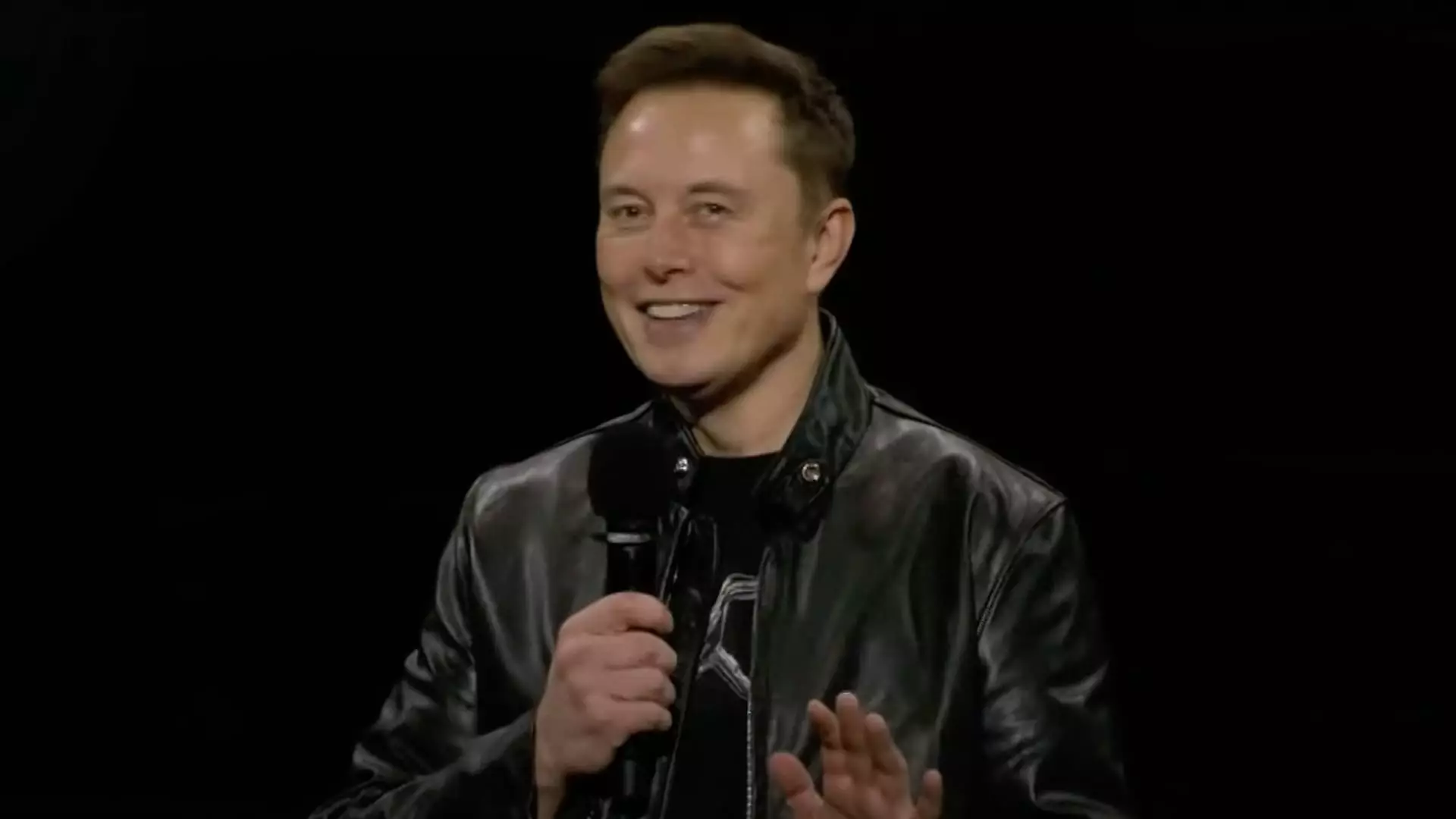Elon Musk, founder and CEO of Tesla, has once again captured headlines—not only because of his innovative ventures but also due to a significant spike in his personal wealth. The recent surge came after Tesla’s stock experienced its most significant rally in a decade, adding an astounding $26 billion to Musk’s net worth in just one day. As of now, Forbes estimates Musk’s net worth at approximately $269 billion, solidifying his status as the world’s wealthiest individual by a substantial margin.
This monumental increase in wealth can be traced back to Tesla’s quarterly earnings report, which exceeded analysts’ expectations. The company posted earnings per share of 72 cents, far surpassing the anticipated figure of 58 cents. The strong performance was driven by impressive revenue from environmental regulatory credits, which amounted to $739 million, as well as $326 million from its Full Self-Driving (FSD) system. Following the release of this positive report, Tesla’s shares surged by 22%, marking the second-largest single-day gain since the company’s Initial Public Offering (IPO) in 2010.
However, the success story was not as straightforward as it might seem at first glance. Prior to this remarkable day, Tesla’s stock had been dwindling, facing its worst month since January, and was on track to continue this downtrend. Now, the company has turned the tide, showing a 5% increase in year-to-date performance, although it still lags behind the Nasdaq’s impressive 23% rise. This performance highlights the volatile nature of Tesla’s stock, as it often responds dramatically to both news and market sentiments.
While Tesla remains the cornerstone of Musk’s wealth, he has significant stakes in several other ventures. Close to 13% of Tesla’s outstanding shares contribute largely to his net worth, but he also holds a substantial interest in SpaceX, which is valued in the private market at over $200 billion. Furthermore, Musk owns X (previously known as Twitter) and has launched an artificial intelligence company, xAI, diversifying his portfolio in sectors beyond electric vehicles.
Despite this extensive financial empire, the stability of Musk’s wealth may be temporarily tethered to ongoing legal matters concerning his 2018 compensation package. A shareholder lawsuit could potentially sway the valuation of his assets. As Musk continues to navigate this turbulent environment, the intersection of his corporate responsibilities and personal ambitions becomes increasingly complex.
During the recent earnings call, Musk reiterated his commitment to the vision of an autonomous future, discussing plans for a public ride-hailing service linked to FSD technology. While excitement surrounds the prospect of a Tesla robotaxi service, reality diverges from expectation. Unlike competitors such as Alphabet’s Waymo, which has successfully launched a commercial driverless ride-hailing service, Tesla has historically struggled to meet its ambitious timelines for producing fully autonomous vehicles.
Musk’s bold claims about the timeline for robotaxis and advancements in Tesla’s product line, including the heavily anticipated Roadster and the Semi truck, often raise eyebrows. Critics point out that while grand visions are presented, the fruits of these labors have yet to materialize; the Roadster remains in design limbo, and the Semi is still only in pilot production.
The Political Arena: Musk’s Controversial Stance
Another layer of complexity surrounding Musk is his growing involvement in political affairs, particularly his vocal support for Donald Trump. This newfound activism manifests in substantial financial contributions to a political action committee advocating for Trump’s candidacy. Musk’s political engagement has unsettled some investors, raising concerns about potential conflicts between his political activities and fiduciary duties as CEO.
The Department of Justice has raised eyebrows over Musk’s recent initiative to reward voters, suggesting it may infringe on federal election laws. The controversy highlights the ambivalence that can arise when a public figure simultaneously leads a major corporation and takes a front-line role in political campaigning, a juxtaposition that has elicited mixed responses from his investors.
Concluding Thoughts: A Complex Legacy
Elon Musk embodies a uniquely dynamic figure in the intersection of technology, wealth, and politics. While he continues to innovate and revolutionize industries such as electric vehicles and space travel, the path he treads is rife with challenges—both in fulfilling ambitious promises and managing his public persona amidst political controversy. As the modern landscape for business and politics evolves, Musk’s journey serves as a thematic representation of the intricate and multifaceted nature of contemporary leadership and engagement. The implications of his actions extend beyond personal wealth, influencing broader investor sentiments and societal perceptions of tech entrepreneurship.

